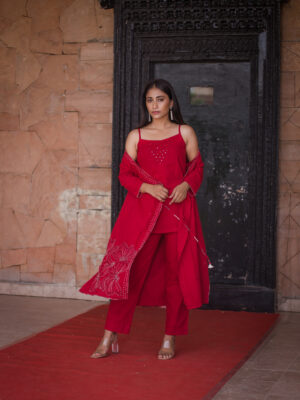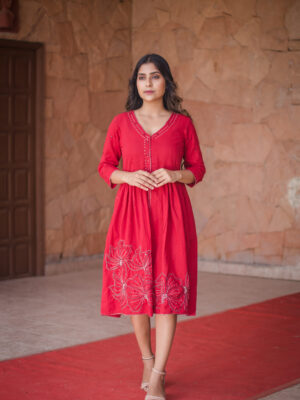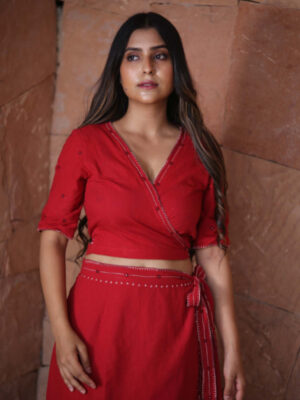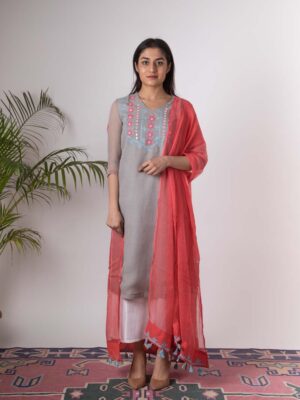
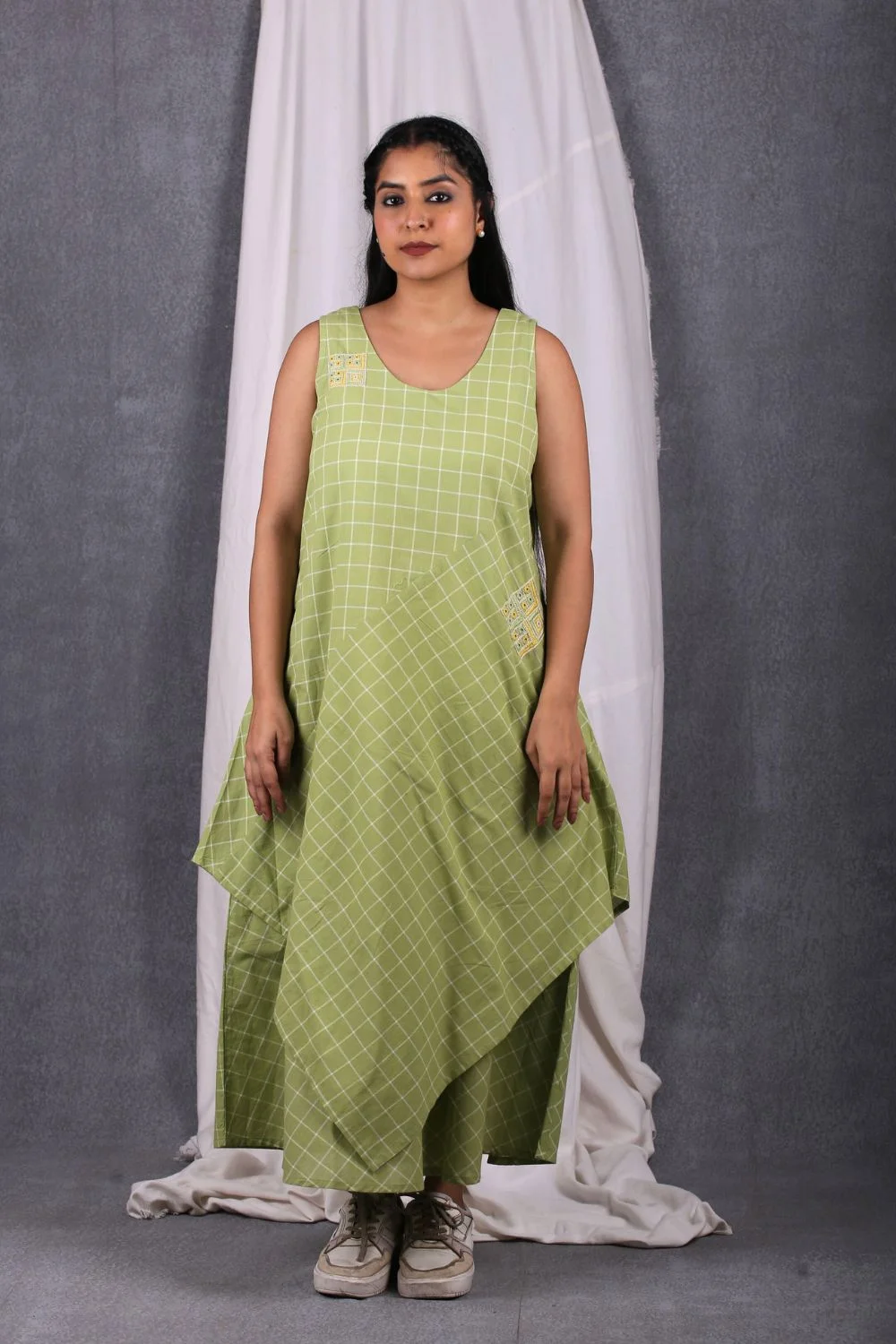
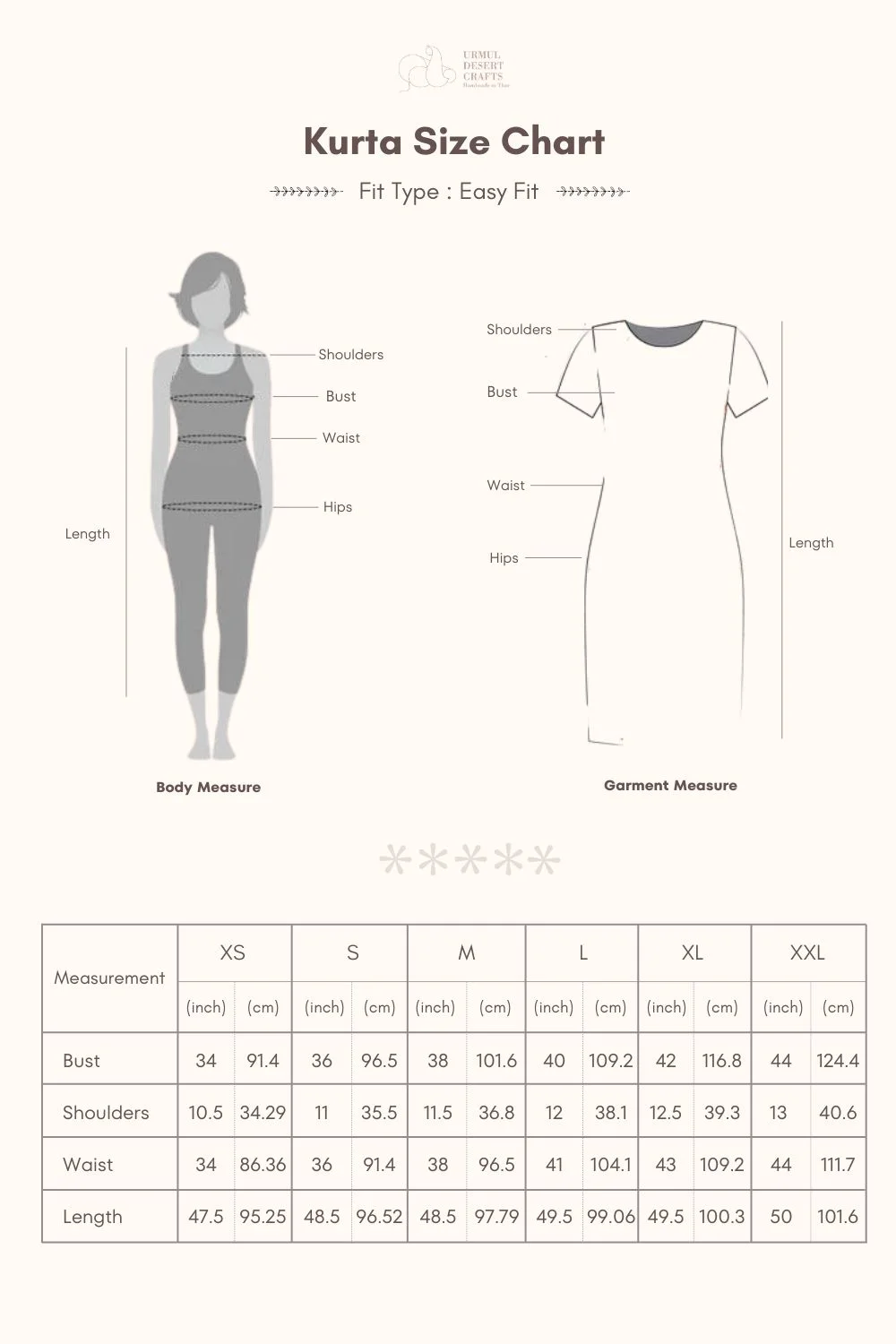
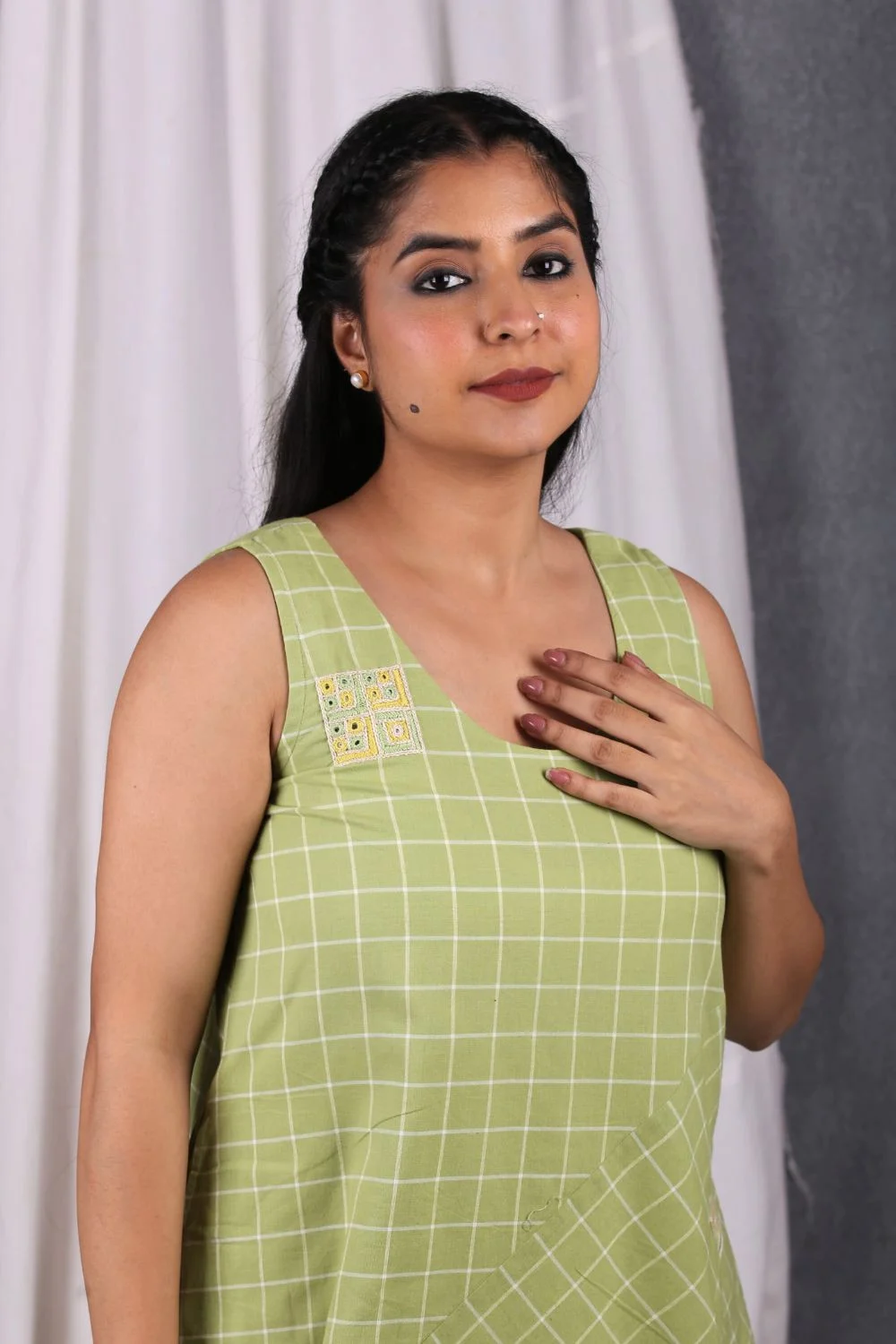
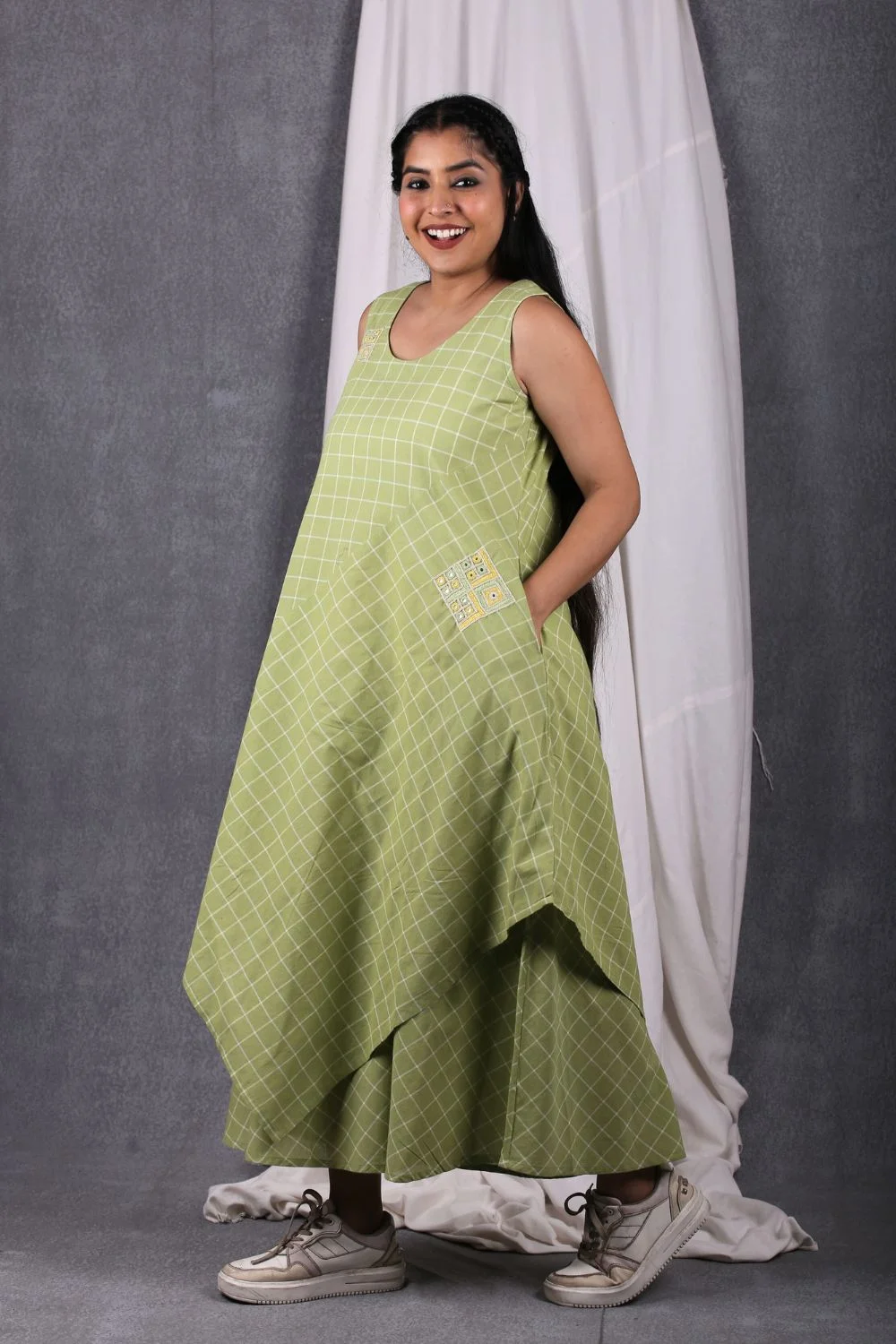
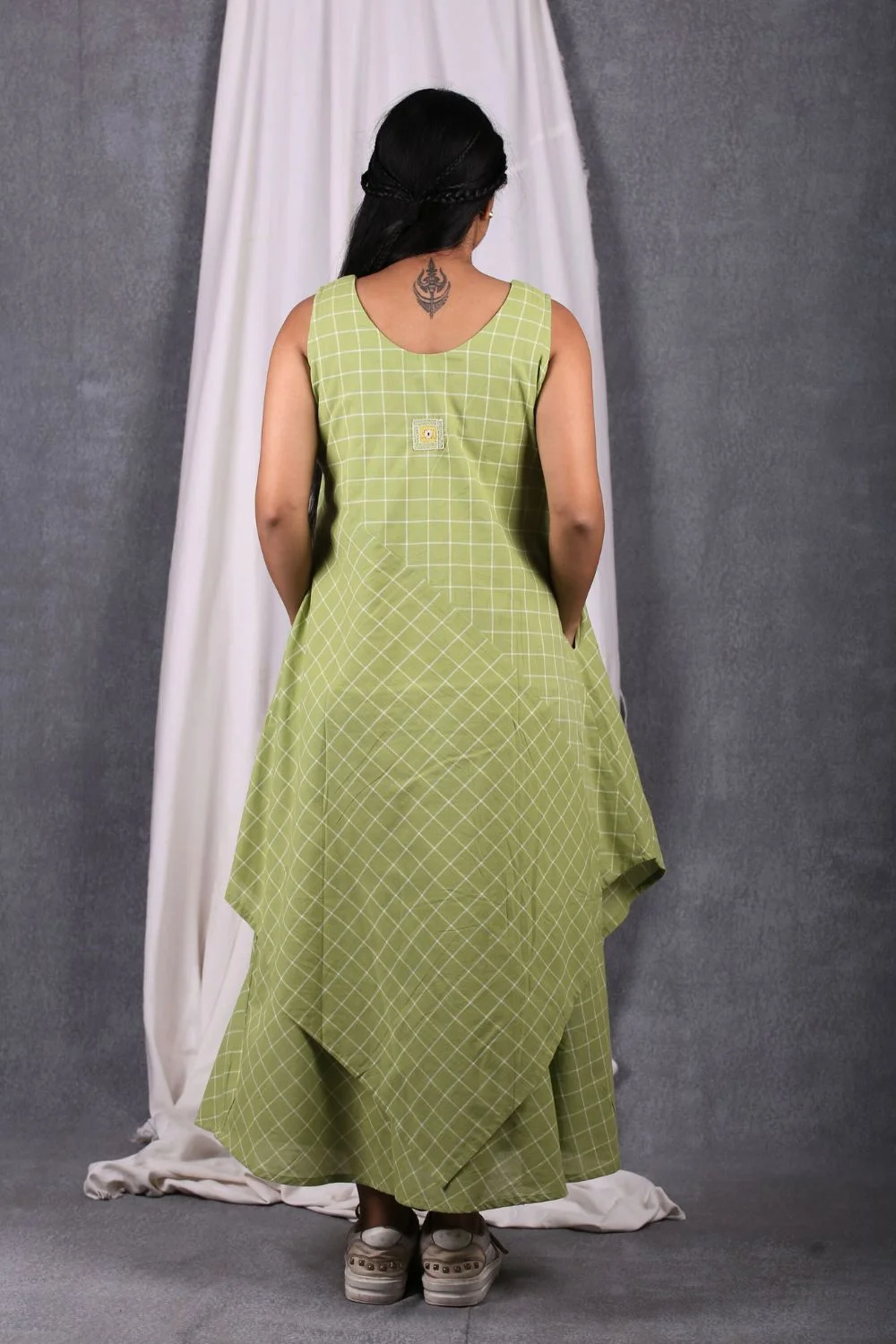
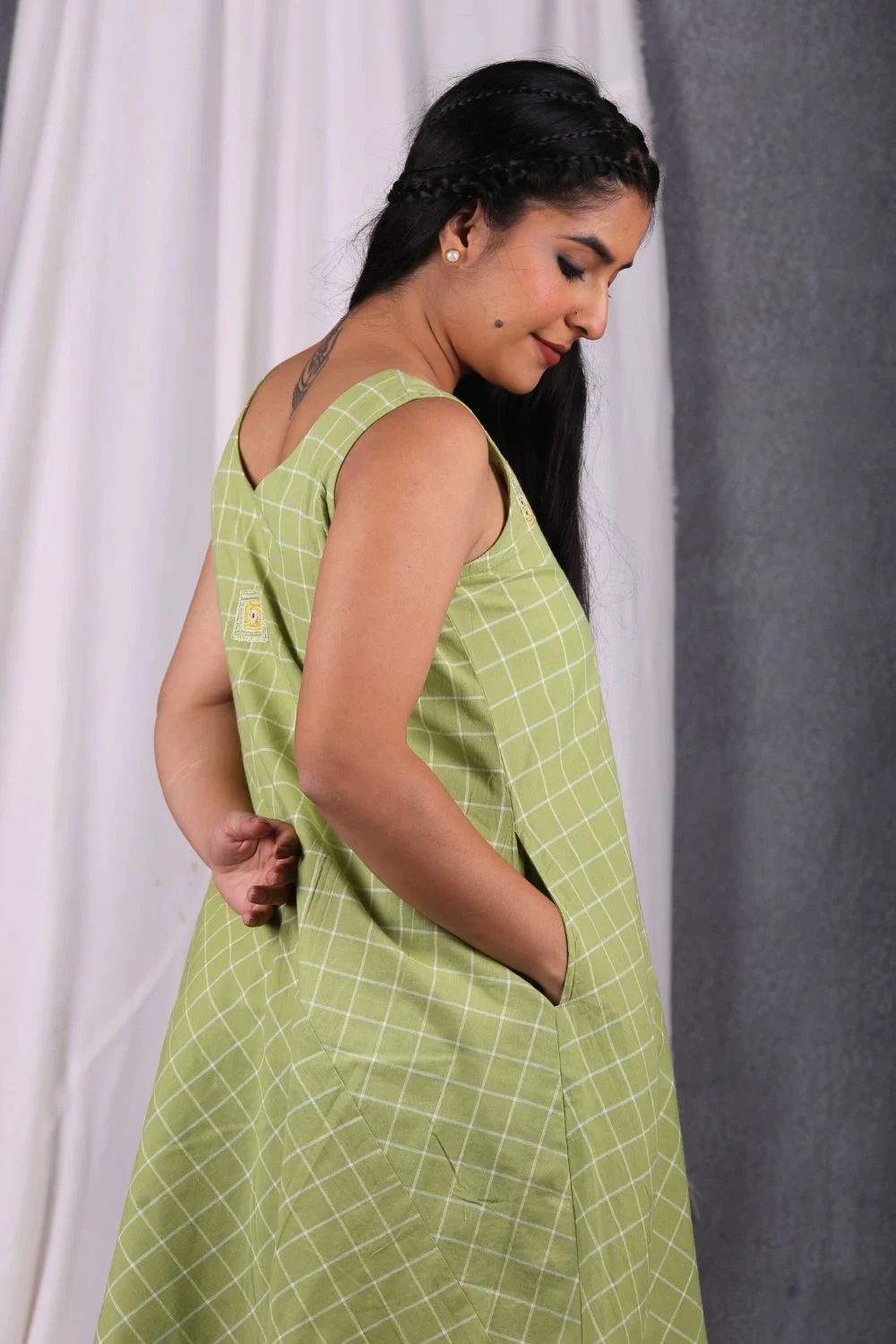
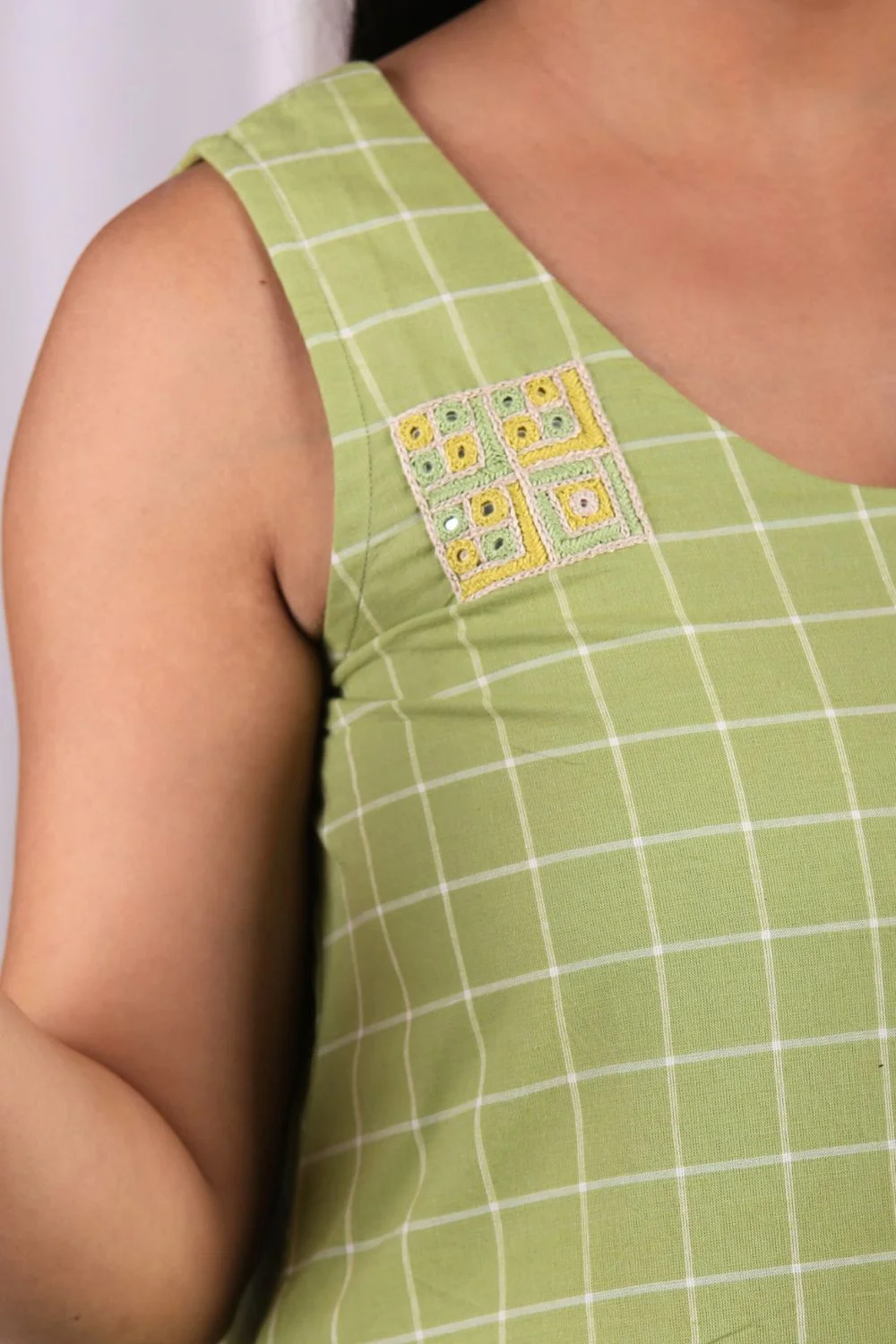
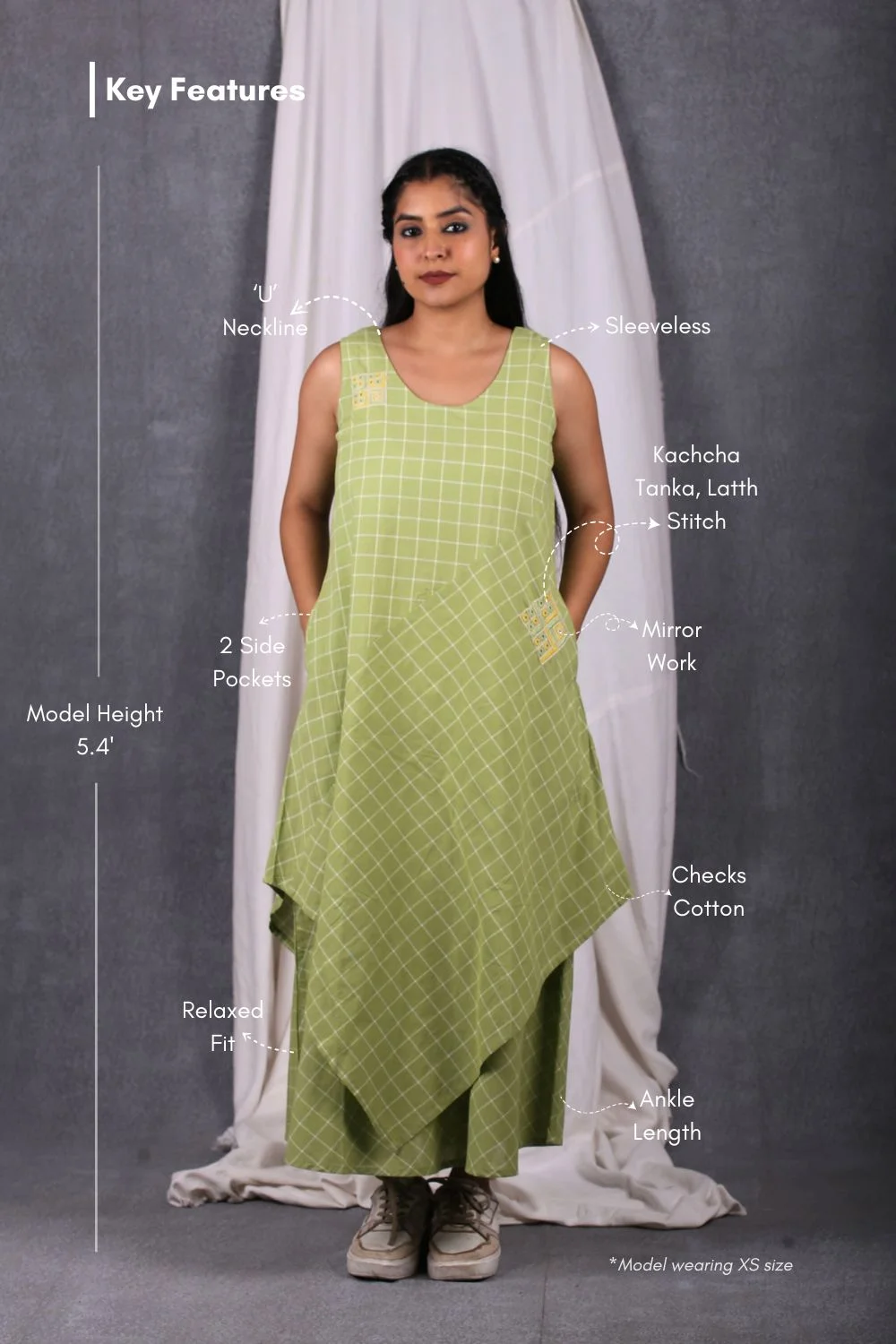
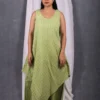
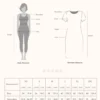

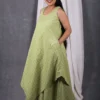
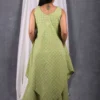
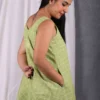
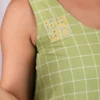
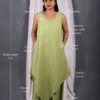
₹2,699 Incl. tax
Redefine your style with the Palm Asymmetric Checks Dress, made from soft, breathable checks cotton. This flared A-line dress features a flattering U-neckline, sleeveless design, and practical pockets for a seamless blend of comfort and elegance.
Adorned with intricate Kachcha Tanka, Latth stitch, and dazzling mirror work on both the front and back, the dress showcases motifs inspired by Rajasthan’s rich heritage. These mirror designs symbolise reflection, light, and protection, blending timeless artistry with a fresh, contemporary style.
Perfect for those who appreciate a unique fusion of tradition and modern elegance, this dress offers balance, beauty, and positivity with every wear.
Each stitch represents the skill and dedication of women artisans from Pugal, Bikaner.
73% of your purchase goes back to the artisans.
How much of my purchase goes back to the artisans?
73% of your purchase goes directly to the artisans, ensuring fair compensation for their craftsmanship.
What are the expenses covered by the remaining percentage of revenue?
The remaining portion of the revenue supports: Raw materials, Machinery, Product design, Packaging, Marketing, Employee salaries, Rent, Government taxes, Legal obligations, Tech assets, R&D, Miscellaneous operational expenses
How are artisans trained at URMUL Desert Craft?
Artisans are trained through hands-on mentorship from senior craftsmen, passing down generations of expertise. They participate in skill development workshops that focus on both traditional techniques and modern design adaptation. Training includes quality control, sustainability practices, and the use of new technologies to meet global standards.
Optimised Logistics
At Urmul Desert Crafts, we prioritise sustainable logistics by using public transport for material transportation, resulting in a minimised carbon footprint.
Eco-Friendly Packaging
Our packaging is minimal and eco-friendly, thoughtfully designed to reduce waste and be fully recyclable, supporting a sustainable future.
public Transport Commitment
We rely on buses and trains for transportation, reducing the need for personal vehicles and helping to significantly lower our overall carbon footprint.
Solar-Powered Facipties
Our artisan centres and manufacturing units operate on solar energy, ensuring that our production processes are environmentally sustainable.
Effluent Treatment Plant (ETP)
We recycle water used during production through our ETP, conserving precious resources and minimising waste in every step.
Sustainable Buttons
The buttons used in this collection are crafted from eco-friendly, sustainable materials, intentionally avoiding plastic and other harmful components.
Repurposing Waste Textiles
At Urmul Desert Crafts, we repurpose waste textiles in our designs, ensuring that nothing goes to waste and contributing to a circular fashion economy.
| Color | Light Green |
|---|---|
| Craft | Kachcha Tanka, Latth Stitch, Mirror Work |
| Design Placement | Back, Front |
| Length | Calf Length |
| Size | XS, S, M, L, XL, XXL |
| Dispatch Timeline | 1- 2 working days to ship the product |
| Dimensions | Width – 14 inch Length – 22 inch |
| Weight | 450gm |
| Net Quantity | 1 Dress |
| Wash Care | Avoid – Bleaching or soaking, Cotton Apparels / Home Furnishing – Hand wash separately in cold water, Ironing – Use low heat, Silk / Chanderi Apparels – Dry clean only. |
| Return-policy | 7 days hassle free Return /Exchange. |
| Disclaimer | Product colour may slightly differ due to various photographic lights or your screen settings., Product is hand block printed or Hand embroiderd might have slight irregularities in the motifs and prints reproduced. |
| Customer Care | +91 78350 00142, info@samakhya.com |
| Manufactured By | Urmul Desert Crafts, Praudh shiksha bhavan, near gol park, purani ginnani, Bikaner PIN 334001 |
| Marketed By | Samakhya Sustainable Alternatives Pvt. Ltd., West Guru Angad Nagar Laxmi Nagar, New Delhi – 110092 |


